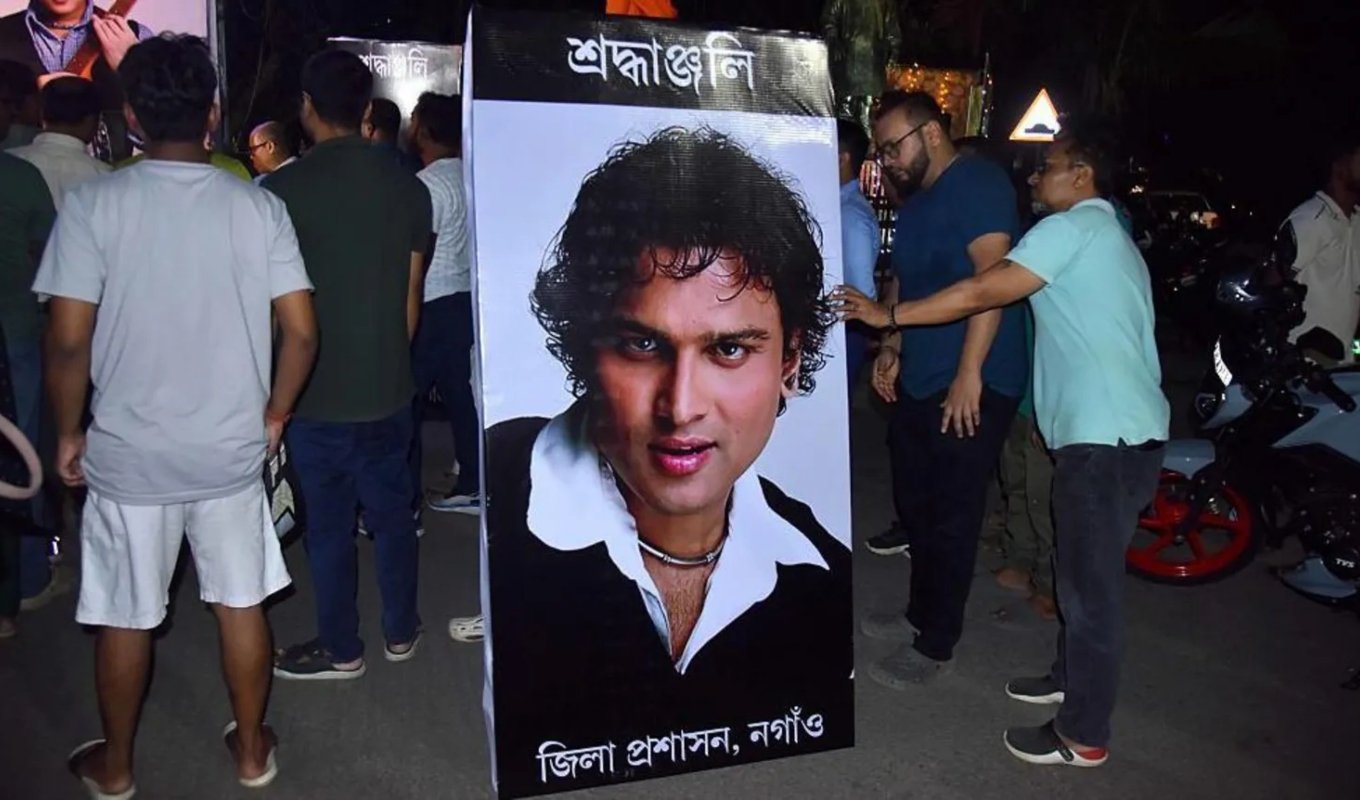In India’s northeastern state of Assam, Vishal Kalita’s massive collection of music cassettes has transformed his Guwahati home into a unique private museum. This collection both recalls the golden era of analogue music and pays tribute to the late Assamese singer Jubin Garg.
At just 30 years old, Kalita has spent over a decade traveling across India to collect old and rare cassettes, carefully preserving them at his home. Last month, he opened the collection to the public for the first time. It includes thousands of cassettes, hundreds of CDs, and rare posters of music artists from around the world—taking visitors back to the golden days of the past.
The main attraction of the collection, however, is Jubin Garg’s discography. The singer, composer, and actor was one of the iconic figures of Assam’s culture. He passed away last month in Singapore, leaving millions of fans in mourning.
Kalita revealed that his collection contains nearly 38,000 of Garg’s songs, many of which are not available elsewhere. Just a few days before his death, on 16 September, Garg visited Kalita’s home and saw the collection, becoming deeply emotional. He reportedly said that the collection reminded him of many of his ‘long-forgotten creations.’
After the singer’s death, Kalita has joined a network where Garg’s friends and fans are working together to preserve and promote his songs on digital platforms. Their aim is to ensure Garg’s music endures while royalty earnings reach his family.
Speaking to the BBC, Kalita said, ‘Some of these cassettes are so old that they could deteriorate at any time. I want them to return to people’s memories.’
However, preserving Garg’s songs comes with complications. Many tracks cannot be released online because their copyright ownership is unclear. Ownership is divided among producers, distributors, and record labels.
Globally, disputes over music ownership are not new. American pop star Taylor Swift, for instance, has re-recorded several albums to regain ownership of her music. In India, artists have long struggled with royalties and ownership issues with production companies.
Garg’s fans have witnessed these complications firsthand. One of his popular songs, Mayabini Ratir Bukut, suddenly disappeared from a streaming platform. Although it was available online briefly, licensing issues led to its removal within a week.
Filmmaker and close friend of Garg, Manas Barua, said, ‘Hundreds of his songs still have uncertain or disputed copyrights.’
Delhi-based intellectual property lawyer Neil Mason explained that under India’s 1957 Copyright Act, each song’s lyrics, melody, and recording have separate ownership. The lyricist and composer are the first owners of the lyrics and music, while the producer is considered the ‘author’ of the recording.
Over time, however, ownership becomes increasingly difficult to determine due to transfers or licensing complexities, especially when original recordings are not properly preserved.
In the end, Vishal Kalita’s museum stands as both a testament to music history and a reminder of the fragile reality of copyright in the digital age.
